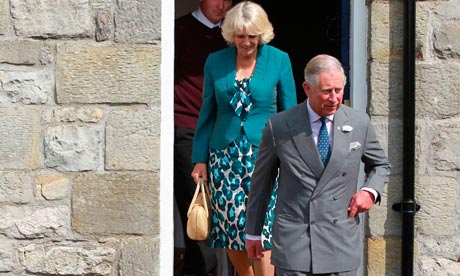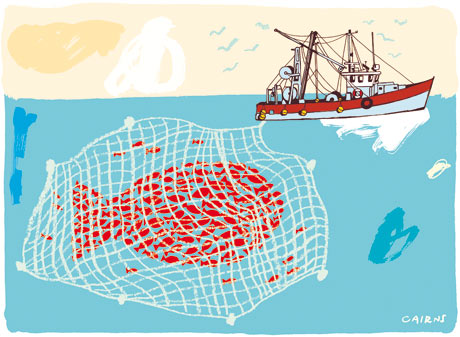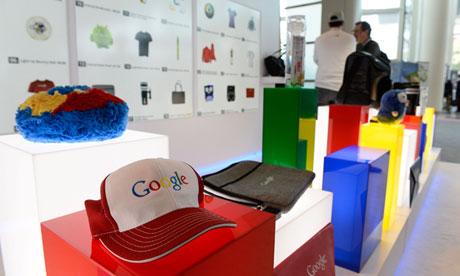Partial closure of U.S. government in third day
The Associated Press Posted: Oct 03, 2013 11:22 AM ET Last Updated: Oct 03, 2013 10:43 PM ET

- The U.S. government shutdown entered its third day on Thursday. Here's a photographic look at some parts of American life that are closed or severely affected by Washington shutting down. (Larry Downing/Reuters)
1 of 14
The Associated Press Posted: Oct 03, 2013 11:22 AM ET Last Updated: Oct 03, 2013 10:43 PM ET
- The U.S. government shutdown entered its third day on Thursday. Here's a photographic look at some parts of American life that are closed or severely affected by Washington shutting down. (Larry Downing/Reuters)
1 of 14
Related Stories
President Barack Obama laid the blame for the U.S. government's partial shutdown at the feet of House of Representatives Speaker John Boehner on Thursday, escalating a confrontation that is running the risk of a potentially damaging clash over the country's borrowing authority.
The Treasury Department warned that a deadlock over raising the nation's debt limit could touch off a new recession even worse than the last one that Americans are still recovering from. Worry about prospects for resolving the debt question within the next two weeks deepened as the shutdown standoff dragged into a third day.
House Republicans adamant about cancelling, delaying or watering down President Barack Obama's signature health-care reform legislation have refused to pass spending measures without anti-Obamacare provisions. Senate Democrats insist that the Affordable Care Act, as it's formally known, was passed into law long ago and isn't up for reconsideration.
With 800,000 federal government employees forced into taking leave, some agencies have almost entirely shuttered, including NASA, the Commerce Department and the Environmental Protection Agency. The partial closure is also disrupting everyone from farmers who can't cash their paycheques to Statue of Liberty tourists.
Late Thursday, the White House announced that Obama was abandoning an already abbreviated trip to Indonesia and Brunei next week in the face of the shutdown. White House spokesman Jay Carney said Secretary of State John Kerry would travel instead.
The Republican-controlled House has tried to push piecemeal legislation to fund individual departments and programs, but most Democrats, including Obama, want a comprehensive resolution that would reopen the whole government, not just bits of it.
The shutdown showdown grew more personal Thursday.
Speaking at a construction company in Washington's Maryland suburbs, Obama cast the House speaker as a captive of a small band of conservative Republicans who want to extract concessions in exchange for passing a short term spending bill that would restart the partially shuttered government.
"The only thing preventing people from going back to work and basic research starting back up and farmers and small business owners getting their loans, the only thing that is preventing all that from happening right now, today, in the next five minutes is that Speaker John Boehner won't even let the bill get a yes or no vote because he doesn't want to anger the extremists in his party," Obama said.
Boehner answered by batting blame back toward Obama and his "my-way-or-the-highway approach." Boehner said that if the president would negotiate to fix flaws in "Obamacare," the shutdown could end.
"The president's insistence on steamrolling ahead with this flawed program is irresponsible," said Boehner, a Republican from Ohio.
Eric Cantor, the Republican majority leader in the House of Representatives, said the House would continue on its course of passing separate bills to remedy "situations that are in critical stages" because of the partial government shutdown that began Tuesday.
The House was expected to vote to for more money for National Guard and Reserves and for veterans programs during the day, and officials said legislation to help some social programs could soon be drafted, as well.
President Barack Obama laid the blame for the U.S. government's partial shutdown at the feet of House of Representatives Speaker John Boehner on Thursday, escalating a confrontation that is running the risk of a potentially damaging clash over the country's borrowing authority.
The Treasury Department warned that a deadlock over raising the nation's debt limit could touch off a new recession even worse than the last one that Americans are still recovering from. Worry about prospects for resolving the debt question within the next two weeks deepened as the shutdown standoff dragged into a third day.
House Republicans adamant about cancelling, delaying or watering down President Barack Obama's signature health-care reform legislation have refused to pass spending measures without anti-Obamacare provisions. Senate Democrats insist that the Affordable Care Act, as it's formally known, was passed into law long ago and isn't up for reconsideration.
With 800,000 federal government employees forced into taking leave, some agencies have almost entirely shuttered, including NASA, the Commerce Department and the Environmental Protection Agency. The partial closure is also disrupting everyone from farmers who can't cash their paycheques to Statue of Liberty tourists.
Late Thursday, the White House announced that Obama was abandoning an already abbreviated trip to Indonesia and Brunei next week in the face of the shutdown. White House spokesman Jay Carney said Secretary of State John Kerry would travel instead.
The Republican-controlled House has tried to push piecemeal legislation to fund individual departments and programs, but most Democrats, including Obama, want a comprehensive resolution that would reopen the whole government, not just bits of it.
The shutdown showdown grew more personal Thursday.
Speaking at a construction company in Washington's Maryland suburbs, Obama cast the House speaker as a captive of a small band of conservative Republicans who want to extract concessions in exchange for passing a short term spending bill that would restart the partially shuttered government.
"The only thing preventing people from going back to work and basic research starting back up and farmers and small business owners getting their loans, the only thing that is preventing all that from happening right now, today, in the next five minutes is that Speaker John Boehner won't even let the bill get a yes or no vote because he doesn't want to anger the extremists in his party," Obama said.
Boehner answered by batting blame back toward Obama and his "my-way-or-the-highway approach." Boehner said that if the president would negotiate to fix flaws in "Obamacare," the shutdown could end.
"The president's insistence on steamrolling ahead with this flawed program is irresponsible," said Boehner, a Republican from Ohio.
Eric Cantor, the Republican majority leader in the House of Representatives, said the House would continue on its course of passing separate bills to remedy "situations that are in critical stages" because of the partial government shutdown that began Tuesday.
The House was expected to vote to for more money for National Guard and Reserves and for veterans programs during the day, and officials said legislation to help some social programs could soon be drafted, as well.




